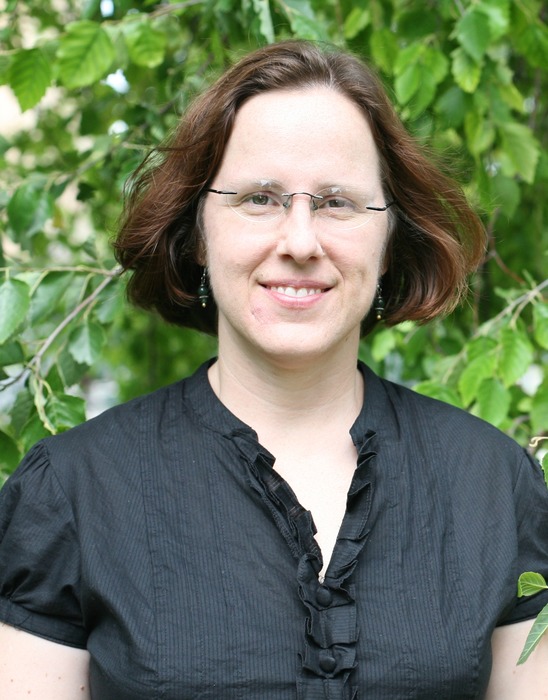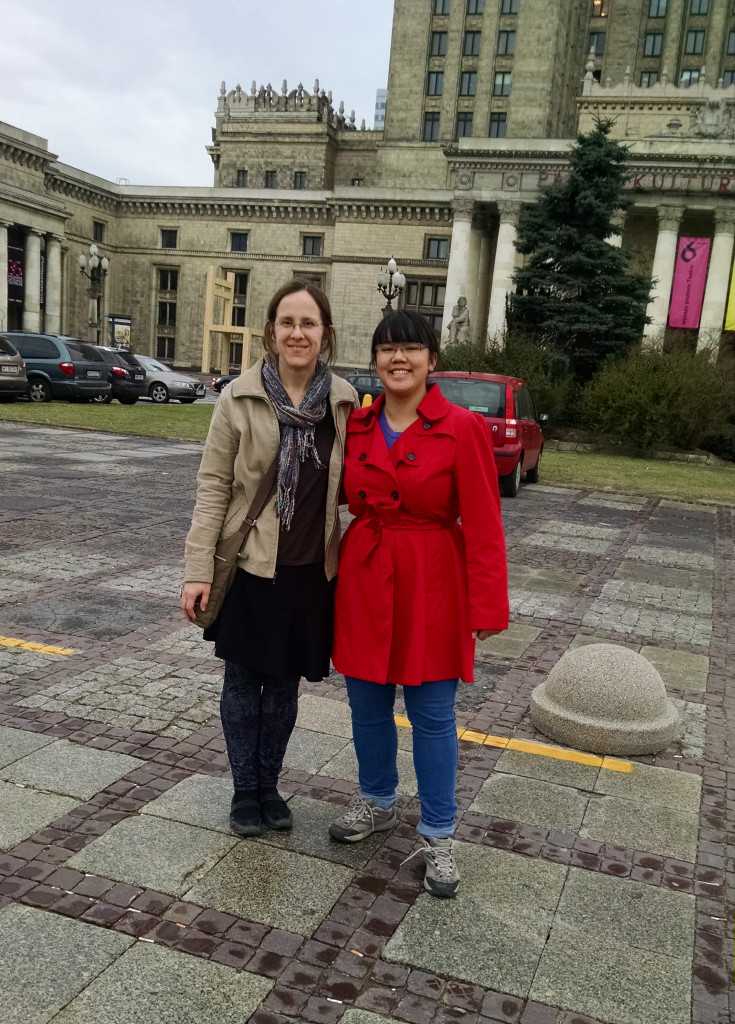Dr. Mimi Gerstbauer, Associate Professor of Political Science and Peace Studies at Gustavus Adolphus College, has spent the last several months in Poland, after being awarded a U.S. Fulbright Scholar grant for 2014-15. Gerstbauer has been teaching courses in international relations at Collegium Civitas, a private university in Warsaw that specializes in social sciences and international politics.
Gerstbauer decided to apply for a Fulbright to Poland because of her research interests in inter-state reconciliation, which focuses on how nations restore relations post conflict. Poland has ongoing reconciliation stories with Germany, Russia, and the Ukraine. Last summer, before she had heard news of the Fulbright award, Gerstbauer received funding from Gustavus’s Kendall Center for Engaged Learning which allowed her to participate in a Council on International Educational Exchange (CIEE) faculty seminar titled, “Ruin and Revival: History, Modern Memory and Identity”. The travel seminar visited Warsaw, Krakow, and Berlin and focused on a multi-disciplinary approach to historical memory of both World War II and the Communist era.
“I thank the Kendall Center for that opportunity,” Gerstbauer said. “It was a wonderful introduction to Poland and an opportunity to learn from the presenters and from the other faculty on the trip who were artists, historians, criminologists, and more.”
Gerstbauer has had an opportunity to integrate her interest in reconciliation into a variety of her courses, including a January course on Forgiveness, a First Term Seminar on War Crimes and their Punishment, and most recently a senior seminar in political science called Politics of Reconciliation.
“Reconciliation and related areas of historical memory are very interdisciplinary and Gustavus values interdisciplinary learning,” Gerstbauer said. “Poland has a lot to teach us. Not many Gustavus students choose to study abroad in Poland, but I hope that will change.”
Gerstbauer notes that Poland is known as the central cemetery of the 20th century for two totalitarianisms – Fascism and Communism. For centuries, it was one of the most welcoming places in all of Europe for Jews. Yet, Poland was the central killing field of the Nazi terror. Everyone knows that World War II began in Poland in 1939, but fewer are aware that the nonviolent Solidarity movement in Poland in the early 1980s was the beginning of 1989 and the collapse of Communism.
At Collegium Civitas, Gerstbauer is teaching two courses: U.S. Foreign Policy, a required course for MA students, and her seminar on the Politics of Reconciliation. Fulbright Scholars are also encouraged to get involved in other ways in their host communities, and Gerstbauer has given lectures on her research and on teaching to faculty at Collegium Civitas, the University of Biaylstok in northeast Poland, and to other academic audiences. Her family (her husband and three sons are with her for the six month term) has been involved with a local church and the children’s school, giving presentations on American culture.
Mimi Gerstbauer has taught at Gustavus since 2001 and directed the Peace Studies program from 2002 to 2014. She is the author of several articles and book chapters on non-governmental organizations and international peacebuilding work and spent the first half of her 2014-2015 sabbatical completing a manuscript on U.S. foreign policy and reconciliation with former enemy nations Vietnam, Nicaragua, and Iraq.
###
Media Contact: Director of Media Relations and Internal Communication Luc Hatlestad
luch@gustavus.edu
507-933-7510

